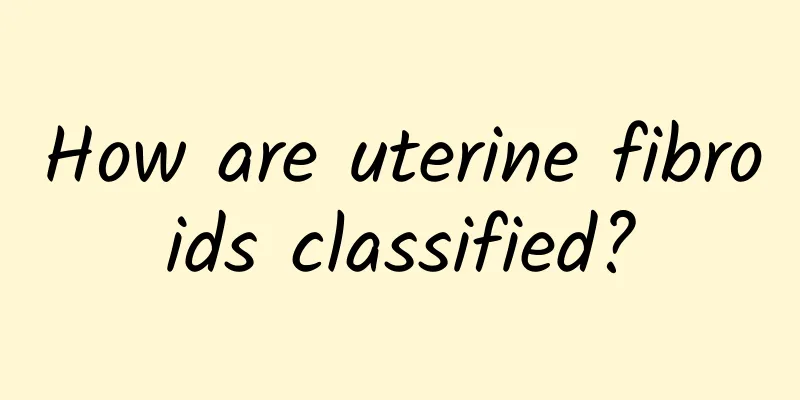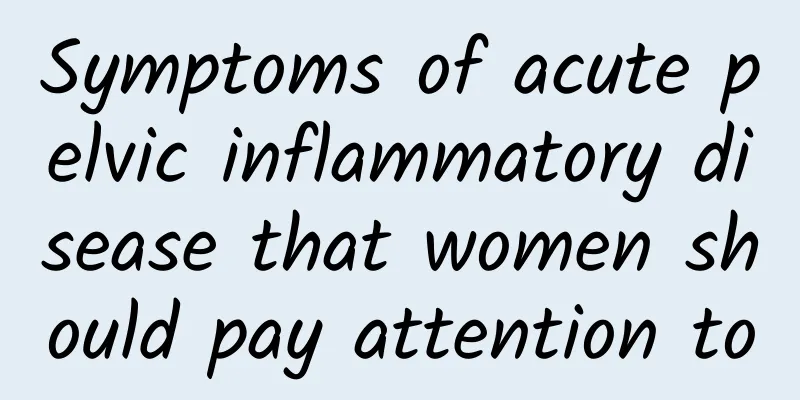Recognize the symptoms of menopausal depression

|
It is common for menopausal women to suffer from depression in clinical practice, which is mainly manifested as fatigue, low mood, etc. Depression seriously affects the physical and mental health of menopausal women and even affects the quality of life of women in their later years. If you want to prevent menopausal depression, it is important to understand the symptoms of menopausal depression. 1. Depression is the main symptom. At first, it may manifest as a decrease in the ability to experience various emotions, listlessness, and lack of interest in everything in a short period of time. The patient feels that "faults" and "unpleasant things" in front of him are flooding into his mind and lingering. Looking into the future, the bleak and dim, the joy completely disappears, and the idea of world-weariness gradually sprouts. Heavy depression always brings self-blame and self-guilt. The patient feels that he has lost his ability to work and has become a waste or a social parasite. Some people exaggerate the general shortcomings of the past into unforgivable sins and repeatedly ask for treatment. The patient may refuse to eat or only eat white rice because of the delusion of guilt. When the mood is extremely low, he may commit suicide or punish himself. 2. Physical symptoms: The patient looks haggard and old, has sluggish eyes, poor appetite, decreased physical fitness, reduced sweat and saliva secretion, constipation, and decreased libido. This is one of the symptoms of menopausal depression. Female patients often have amenorrhea, and early awakening is the most prominent sleep disorder. Patients often wake up 2-3 hours earlier than before, cannot fall asleep after waking up, and wait for the arrival of this day with pessimism. This symptom is of great significance in diagnosis. 3. Slow thinking, slow speech, low voice, small amount of speech, slow response, and every word and action requires overcoming great resistance. In the most serious cases, it may be a state of stupor. Patients with agitated depression have significantly increased speech and movements, anxiety and fear, and are very dangerous. 4. "Hidden depression": some patients with depression have obvious physical symptoms, often manifested as repeated or persistent headaches, dizziness, chest tightness, shortness of breath, general weakness, palpitations, constipation, abnormal appetite, weight loss, etc., while depressive symptoms are often concealed. I hope that the symptoms of menopausal depression described above can attract the attention of patients. Family members of patients with menopausal depression should care for and understand the patients, fully estimate the severity of the disease, and take nursing measures. Menopause: http://www..com.cn/fuke/gnq/ |
<<: Do you know what the symptoms of menopausal syndrome are?
>>: Experts review the diagnosis of acute pelvic inflammatory disease
Recommend
Eat five-color fruits and vegetables every day to activate your health protection from the inside out
A sudden epidemic caught many people off guard. A...
Will tuberculosis affect menstruation?
Will tuberculosis affect menstruation? 1. Tubercu...
What are the treatments for amenorrhea?
There are many ways to treat amenorrhea. Accordin...
How much does it cost to have surgery for bacterial vaginosis?
Will the cost of bacterial vaginitis examination ...
What are the dangers of abortion for women? Pay attention to these 7 things after abortion
Nowadays, the number of cases of painless abortio...
Let me explain the causes of vulvar leukoplakia
Vulvar leukoplakia is a chronic disease among gyn...
What are the symptoms and treatment of adnexitis?
What are the symptoms and treatments of adnexitis...
Menopausal women can use Chinese medicine fumigation to treat vulvar leukoplakia
The menopause and post-menopause period is a high...
Learn about the treatment precautions for cervical hypertrophy in advance
The occurrence of cervical hypertrophy has a grea...
Which hospital is good for pelvic inflammatory disease?
Pelvic inflammatory disease seriously affects the...
What causes vaginal candidal infection?
Fungal vaginitis has always been the focus of peo...
What medicine should I take for menopausal fever? Experts have explained it to you
This symptom can be improved by supplementing est...
How to cure female cervicitis? Analysis of methods for treating gynecological inflammation and cervicitis
I believe everyone is familiar with diseases such...
Can bacterial vaginosis be completely cured?
Among the various types of vaginitis, everyone mu...
Pathogenesis of menopausal functional uterine bleeding in TCM
Traditional Chinese medicine believes that the ca...









